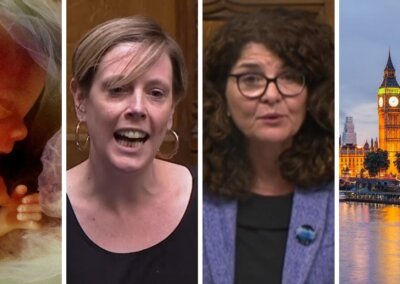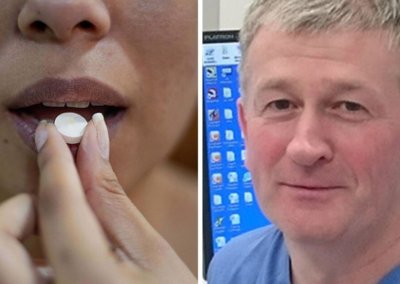A study has suggested that more than 10,000 women had to receive hospital treatment following the use of medical abortion pills in England between April 2020 and September 2021.
Based on data collected from 85 Freedom of Information requests to NHS Trusts across England, the study suggests that more than 1 in 17 women who had a medical abortion over the 18-month period needed hospital treatment.
Kevin Duffy, who led the FOI investigation, said: “This is the disturbing truth of abortion care during the pandemic that has not been reported to the government by providers”.
“This investigation exposes the reality of what thousands of women experiencing crisis pregnancies have been through during the pandemic. It demonstrates clearly what needs to change and why the government must not make DIY home abortion telemedicine permanent. The time to end it is now well overdue”.
The report on the FOI’s reveals serious reporting problems in how the DHSC records data. As the report states:
“The official DHSC statistics for 2020 show a 1.1% complication rate for all medical abortions and only 0.3% for medical abortions under 10-weeks”. The footnote on Table 8 says: “Total complications include: haemorrhage, uterine perforation, sepsis and/or cervical tear and are those reported up to the time of discharge. Therefore complications that occur after discharge may not be recorded”.
Importantly, as the report goes on to say, abortion providers and the DHSC do not report medical abortion treatment failure as a complication, despite the fact that at least 5.9% of women having a medical abortion need subsequent hospital treatment.
Furthermore, the current method of reporting does not record complications that occur after discharge. In which case, even if the 5.9% failure rate for a medical abortion were included, they would still likely be missed.
The report also found that “3.0% of women require a surgical evacuation” after a failed medical abortion, and “2.3% of women having an induced medical abortion are subsequently treated at an NHS hospital for haemorrhage”.
Under reporting of complications
In March this year, Baroness Philippa Stroud highlighted the difference in the incidences of reported abortion complications arising from ‘DIY’ home abortions and the data gathered from hospitals via Freedom of Information (FOI) requests, which indicates a far higher rate of complication.
She said: “Between April and June 2020, from the 23,000 at-home abortions, these forms reported just a single complication, yet FOI requests to just six hospitals during the same period suggested that women were presenting due to complications at a rate five times higher than that reported by the Department of Health and Social Care”.
A surge in 999 calls has been documented in England and Wales in relation to women performing ‘DIY’ abortions.
Right To Life UK are asking the public to write to their MP requesting them to contact Health Secretary, Sajid Javid, seeking an end to temporary ‘at home’ abortion schemes. The public can contact their MP using a tool that has been made available here.
Right To Life UK spokesperson, Catherine Robinson, said: “This study suggests that over 10,000 women have needed hospital treatment following the use of medical abortion pills since March 2020”.
“Concerningly, the lack of a routine in-person consultation or follow-up in the case of ‘at-home’ abortion likely further adds to the significant risks that the use of medical abortion pills carry for the health and safety of women and girls across the country”.
“These numbers and the inability or unwillingness of the DHSC to accurately keep records of complications are horrifying, but unfortunately unsurprising”.












